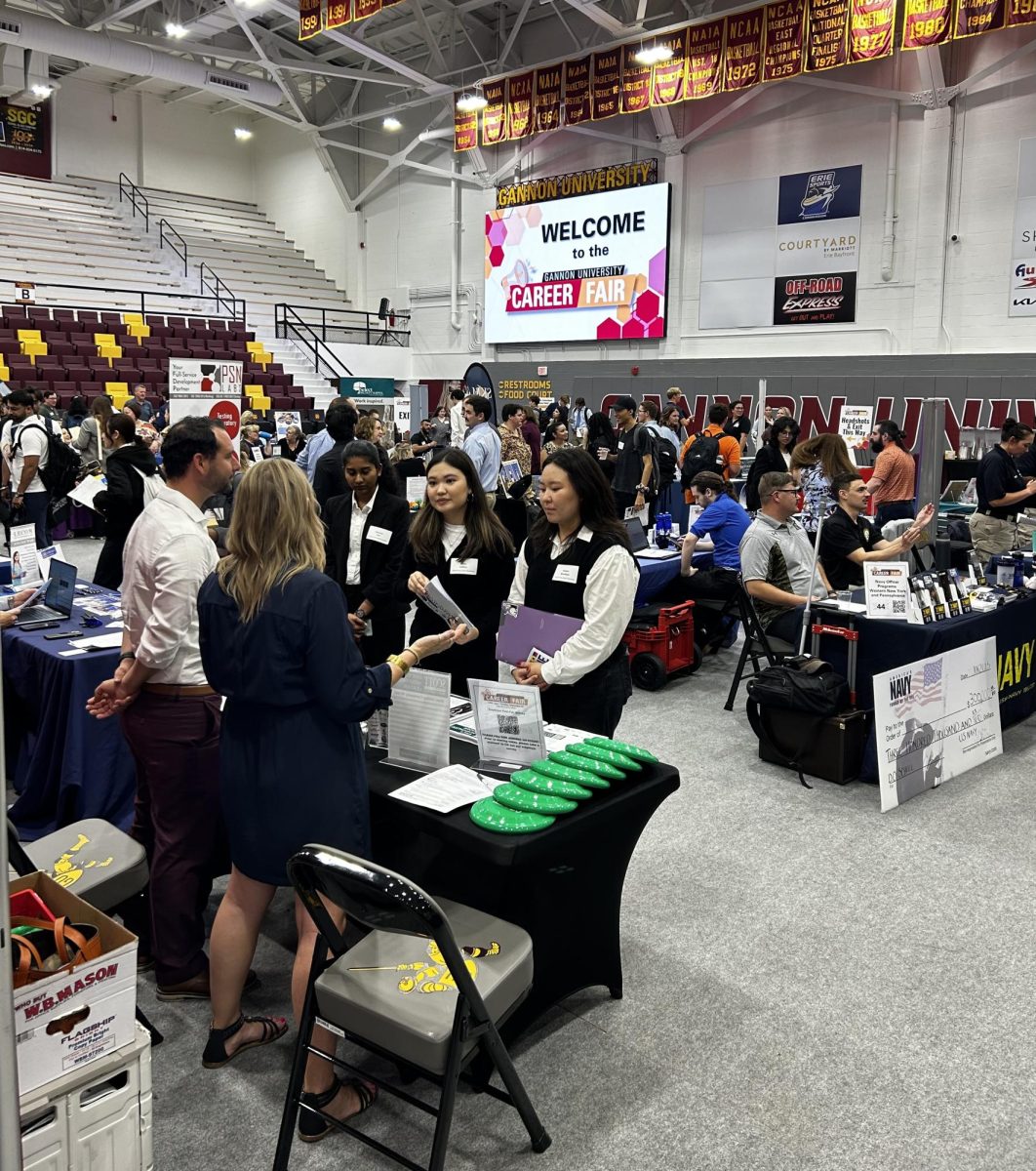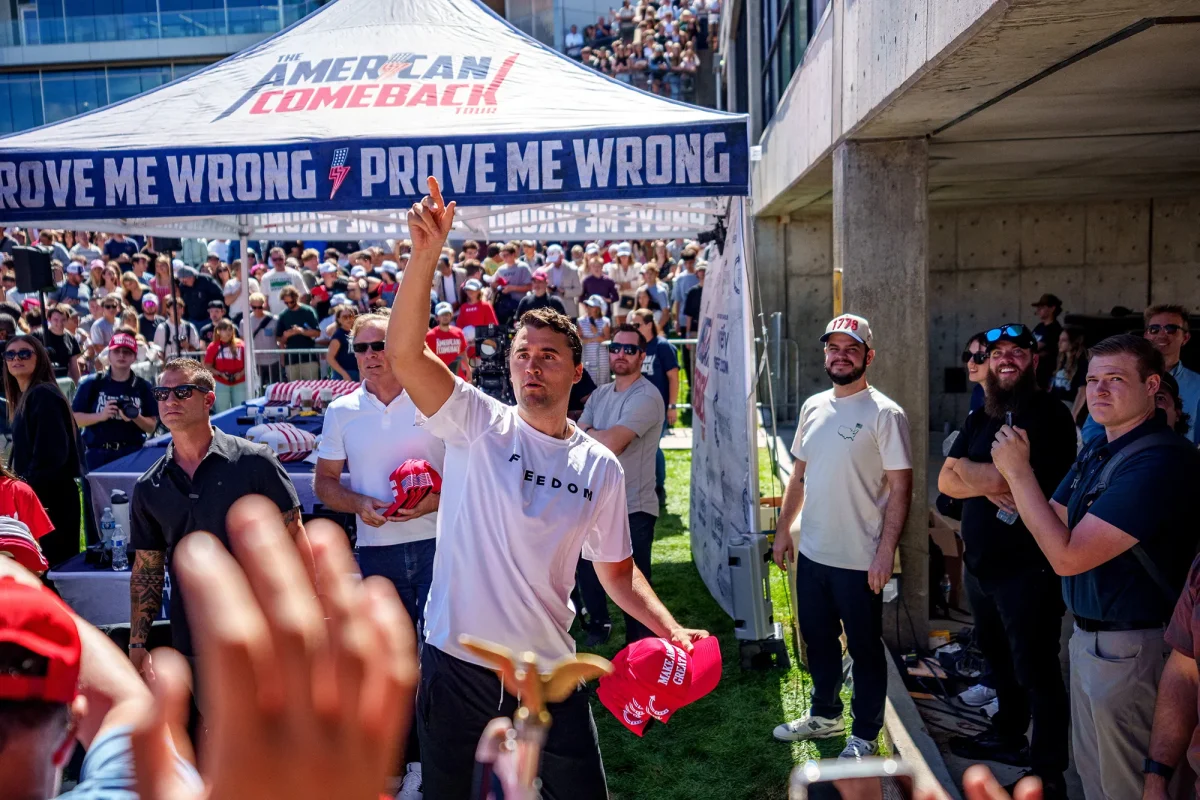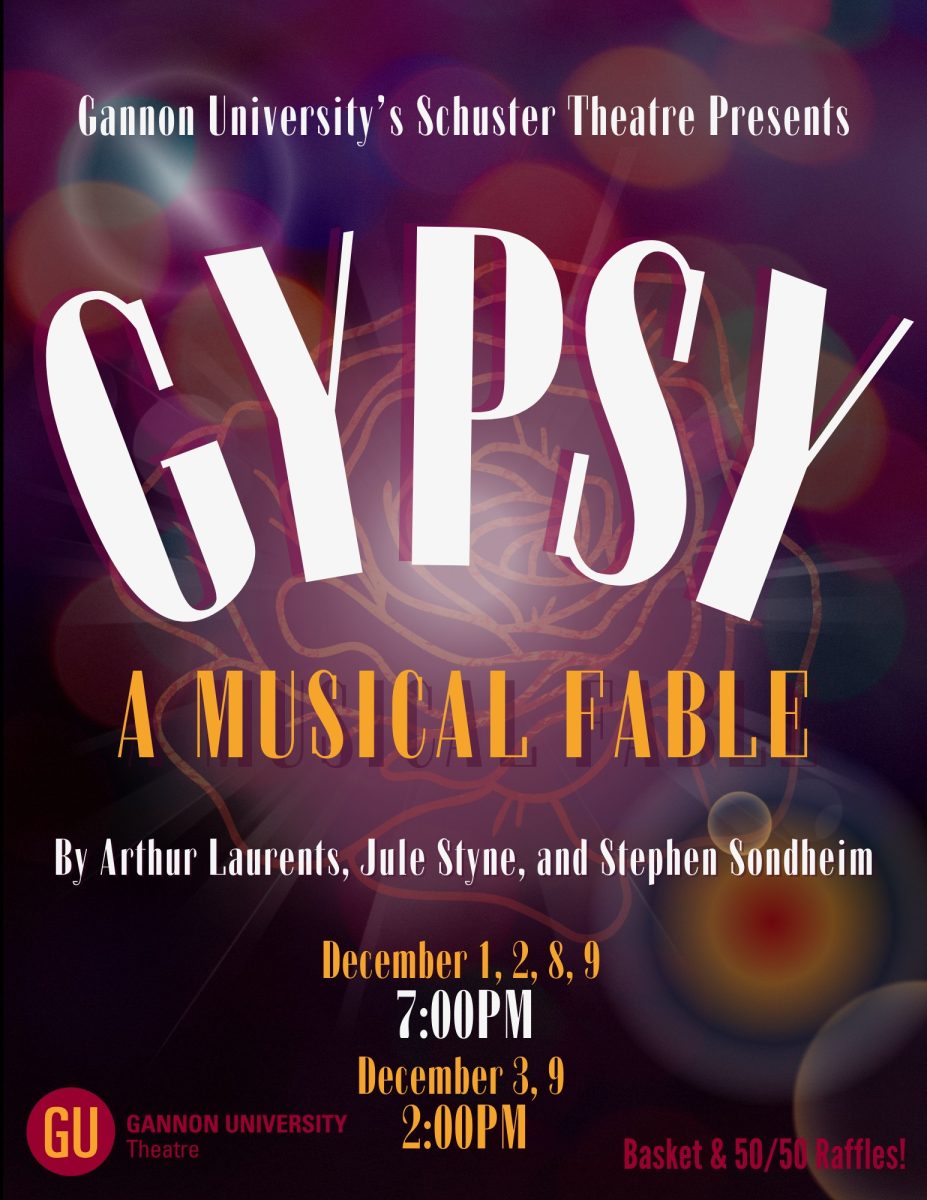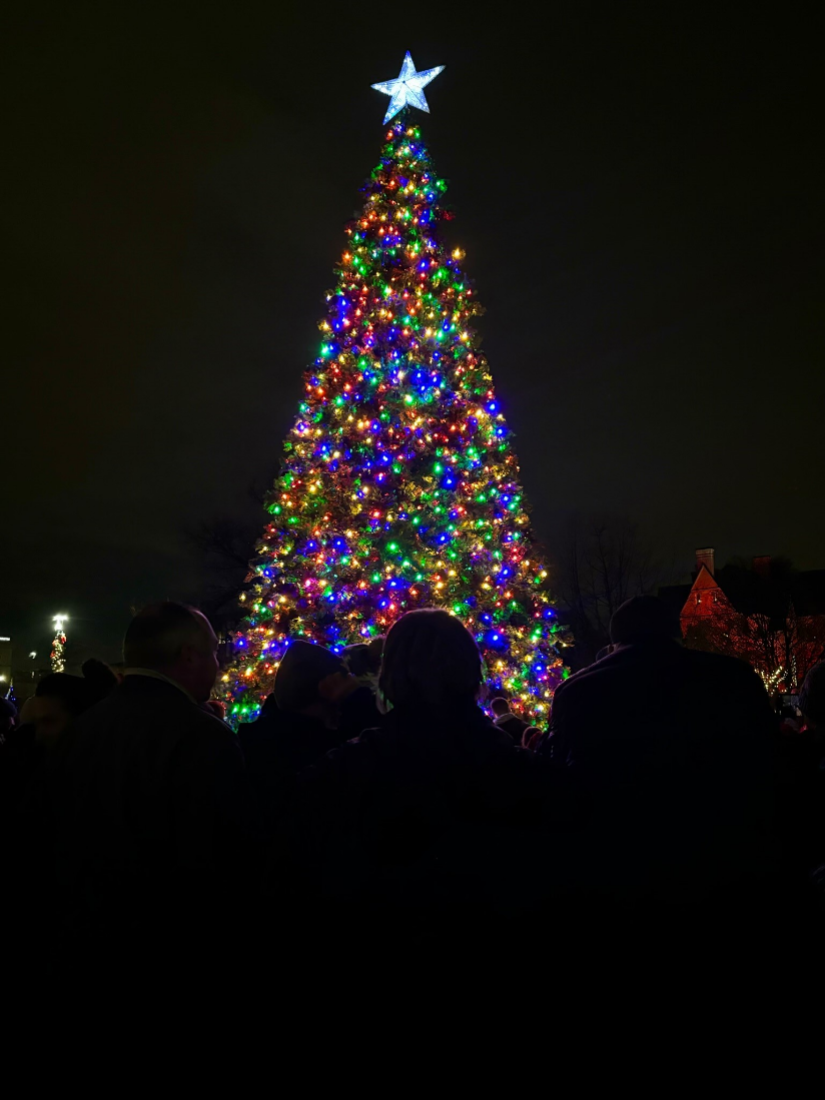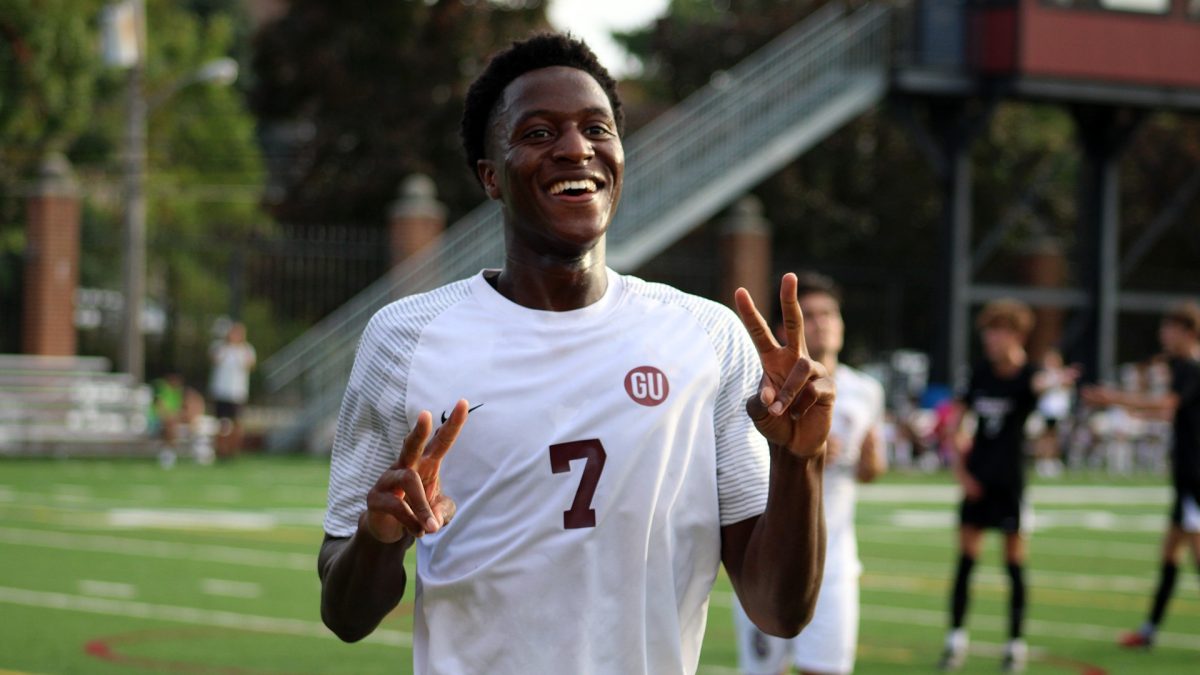By SAMANTHA GRISWOLD
managing editor, news
Gannon University’s Black Student Union (BSU) held its first panel discussion of the spring semester Tuesday evening, focusing on healing the divide that has been observed in our nation, especially in recent months.
The panel, titled “Face the Facts: Healing the Divide,” was held in Room 104 of the Zurn Science Center and aimed to create conversation about topics that may not readily be talked about, like race relations and racial unity.
Erika Thomas, a junior criminal justice major and president and founder of BSU, said that she created the Gannon chapter of the organization last April to give minority students a voice and to show a different side of black culture.
“The group is open to everyone, but we are learning about black culture and the cultures and ideas of the other group members that are not black,” Thomas said.
Thomas also said that she thinks the panel discussion is necessary because of what is going on in society today.
“I think there is an illusion in America about unity,” she said. “Some people hold onto this illusion that the United States was always together and we were unified – hence the name, ‘United States.’
“But were we ever really unified? Have we really respected people that looked different from us and came from a different culture than we do?”
BSU prefaced the discussion by laying out a set of rules that participants had to abide by, including that they must be respectful, not talk over each other, not attack, rant or swear and if participants couldn’t abide by the rules, then they would have been asked to leave.
Eric Dart, Ph.D., an instructor in the theology department, moderated the discussion and began with a prayer that asked for togetherness and the strength to overcome the fear of misunderstanding.
The panel consisted of Eli Kerr, Anthony Howard, Catherine Wahlenmayer, Zubda Khokhar and Tino Sanhaga – all of whom are Gannon students.
The discussion was constructed by asking the panel a question, hearing their response and then opening up the question for audience dialogue.
The first question that was asked dealt with how racial division is manifested in the United States. Almost all of the panel members agreed that deep-rooted stereotypes that are perpetuated by pseudo facts are one of the main causes of racial division in the country.
Kerr said that institutional racism and segregation is also a cause of division between races, but that the division manifests though fear.
“We’ve learned to fear each other,” Kerr said.
Wahlenmayer said that she thought racial division is manifested in the U.S. because of the radical sides people are being forced to take.
“It’s more of an either/or thing,” she said. “If you’re neutral, you’re taken as being against a certain race.”
Sanhaga rhetorically asked, “Why are we still fighting these divisions 50 years after the Civil Rights movement?
“Those who have privilege don’t want to accept the fact that they’re privileged, but that’s what needs to be done in order to recognize the less privileged.”
Dart introduced another question: How has the past presidential election affected America?
Khokhar said that she thinks the election showed how uneducated people are about the system. She also said that one of the major topics in the election was the economy and how people were concerned with immigrants taking jobs.
“We all too often paint immigrants as the bad guys, but we don’t talk about the one percent,” she said. “They’ve done a good job of not being the bad guy.”
Kerr piggybacked off of Khokhar and said that he thinks the shift of power will cause the rich to get richer and the poor to get poorer. He also said that the current generation of young adults is beginning to realize that they can make great changes.
“It’s the last hurrah of the baby boomers,” Kerr said.
Howard mentioned that the election gave many people the courage to reveal their true sentiments, an assertion which was echoed with a murmur of affirmation from the audience.
Sanhaga said that the election brought about fear, especially for immigrants. She mentioned that she didn’t know if she would be able to return home over school breaks or if she would be able to come back to the U.S. if she did leave.
“This division makes America prone to attacks,” she said. “Attackers are going to strike when you’re weak – when you’re divided.”
The last question presented by Dart asked how we can continue to build racial relations in the U.S.
Sanhaga said that it begins with “you and me.
“We have to take that step to become instruments of peace, instruments of change,” she said.
Howard said that creating dialogue is key.
“It’s a give and take,” he said. “People don’t understand that different races were involved in the whole development of the human race.”
Thomas concluded the discussion with a closing statement.
“Unity and love are imperative,” Thomas said. “Regardless of how other people live their lives – even if you don’t agree with them – they’re still human.”
SAMANTHA GRISWOLD
[email protected]





